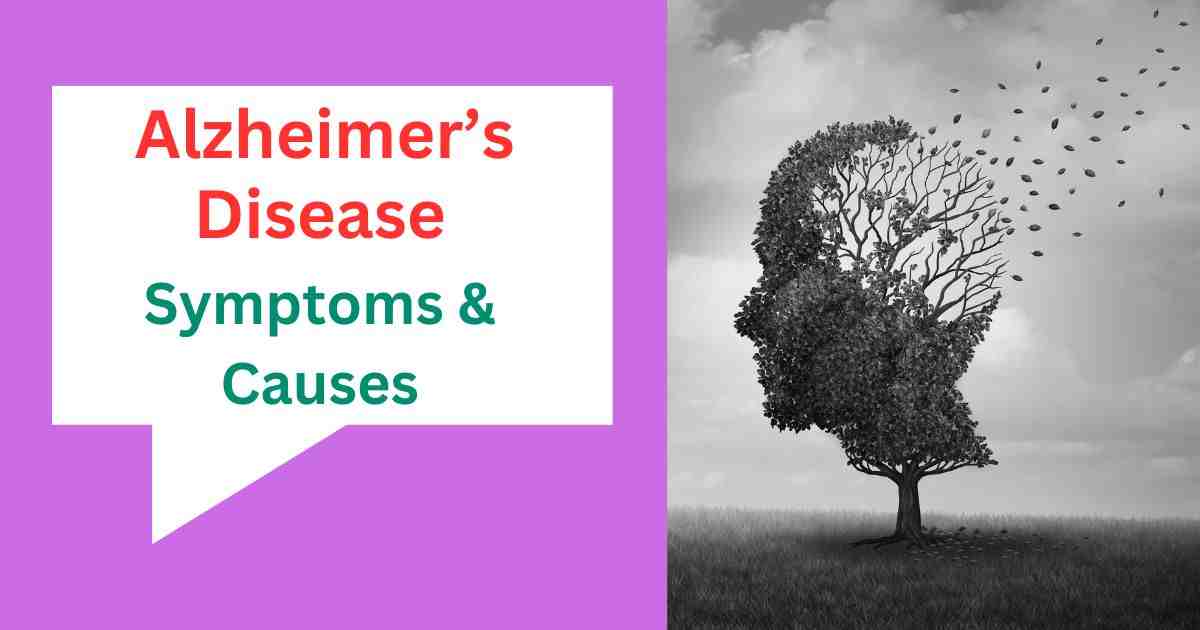Alzheimer’s disease is a progressive neurological disorder that affects millions of people worldwide, predominantly those over the age of 65. It is the most common form of dementia, causing a decline in memory, thinking skills, and eventually the ability to carry out daily tasks. As our understanding of the disease grows, so does the importance of recognizing its symptoms and underlying causes.
What Is Alzheimer’s Disease?
The hallmark characteristics of Alzheimer’s disease is the accumulation of abnormal protein deposits in the brain. These include beta-amyloid plaques that form between nerve cells and tau tangles that develop within neurons. These abnormal protein deposits disrupt communication between brain cells and eventually lead to cell death, resulting in the progressive loss of brain tissue.
Symptoms of Alzheimer’s Disease
Memory Loss: One of the most recognizable symptoms of Alzheimer’s disease is memory loss that disrupts daily life. This can manifest as forgetting important dates or events, repeatedly asking for the same information, or relying on memory aids or family members for things they used to handle on their own. If you need a memory supplement, Neurodrine is a great option.
Difficulty in Problem Solving: Individuals with Alzheimer’s may experience challenges in problem-solving, particularly with tasks involving numbers or following a plan, such as managing finances or cooking.
Confusion with Time or Place: Losing track of dates, seasons, or the passage of time is common in Alzheimer’s. Individuals may forget where they are or how they got there.
Difficulty Completing Familiar Tasks: People with Alzheimer’s often struggle with completing familiar tasks, such as driving to a familiar location, managing a budget, or remembering the rules of a favorite game.
Language Problems: Alzheimer’s can cause difficulty with communication. This might involve trouble finding the right words, following or joining a conversation, or repeating oneself.
Changes in Mood and Personality: Mood swings, depression, and increased anxiety are common in Alzheimer’s patients. They may become confused, suspicious, depressed, fearful, or anxious. Additionally, they may become more withdrawn from social activities and lose interest in hobbies.
Loss of Initiative: A person with Alzheimer’s may become passive, showing less interest in initiating activities or socializing. They may also become increasingly dependent on others for decision-making and daily tasks.
Causes of Alzheimer’s Disease
The scienctific world is not yet perfectly clear about the exact causes of Alzheimer’s disease. But fundamentally, brain proteins fail to function as normal.
Amyloid Plaques and Tau Tangles: Scientists studying the cause of Alzheimer’s disease focus on the role of two proteins. Alzheimer’s is characterized by the presence of abnormal structures in the brain, including amyloid plaques and tau tangles. Amyloid plaques are clumps of protein fragments that build up between nerve cells, while tau tangles are twisted fibers of another protein that build up inside cells. These structures disrupt communication between brain cells and eventually lead to cell death.
Neurotransmitter Imbalance: Neurotransmitters are chemicals that transmit signals between nerve cells in the brain. In Alzheimer’s disease, there is a disruption in the levels of neurotransmitters, particularly acetylcholine, which is involved in memory and learning. This imbalance contributes to the cognitive decline seen in Alzheimer’s patients.
Genetics: While the majority of Alzheimer’s cases are sporadic, meaning they occur with no clear cause, a small percentage are familial, meaning they run in families. Mutations in certain genes, such as the amyloid precursor protein (APP), presenilin 1 (PSEN1), and presenilin 2 (PSEN2) genes, can increase the risk of developing Alzheimer’s disease.
Age: Advancing age is the greatest risk factor for Alzheimer’s disease. While Alzheimer’s is not a normal part of aging, the risk of developing the disease increases with age. Most people with Alzheimer’s are 65 and older.
Environmental Factors: Some environmental factors, such as head trauma, exposure to certain toxins, and poorly controlled cardiovascular risk factors (e.g., high blood pressure, diabetes, obesity), may increase the risk of developing Alzheimer’s disease.
Here is our article on the best food for brain health.
Final Thoughts
Alzheimer’s disease is a devastating condition that affects millions of individuals and their families worldwide. Research into Alzheimer’s disease is ongoing, with scientists working to better understand its underlying mechanisms and develop more effective treatments and ultimately a cure. Early diagnosis and intervention are crucial in managing the symptoms of Alzheimer’s disease and improving outcomes for affected individuals and their families.
While current treatments can help manage symptoms, ongoing research into the mechanisms of the disease is essential for developing more effective therapies and, ultimately, preventing Alzheimer’s altogether. Additionally, raising awareness and supporting individuals and families affected by Alzheimer’s is vital in promoting understanding and compassion for those living with this challenging condition.
For more reading on Alzheimer’s disease, here is our article about Alzheimer’s disease treatment.

